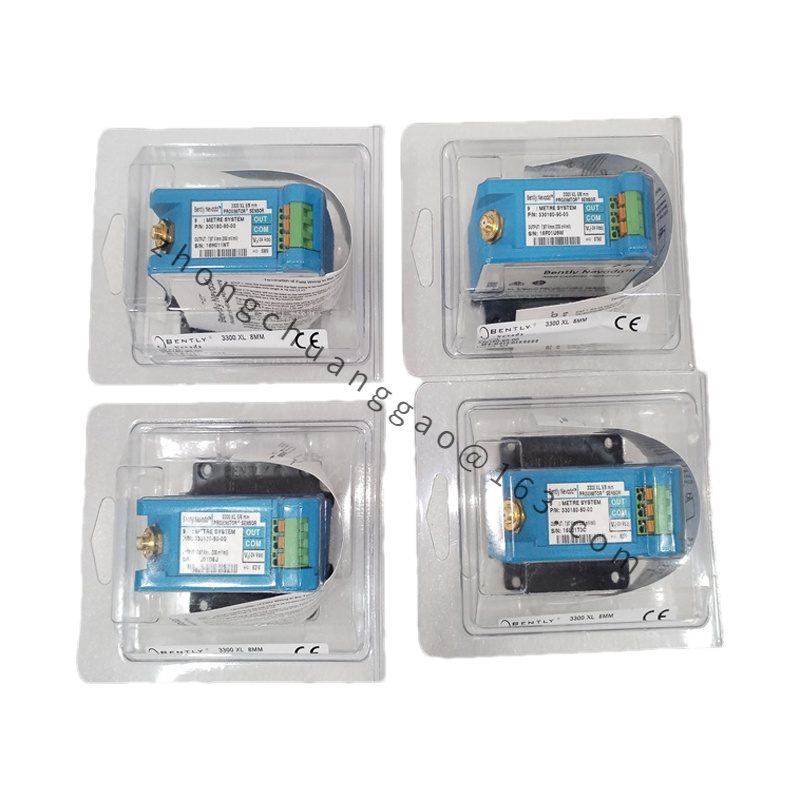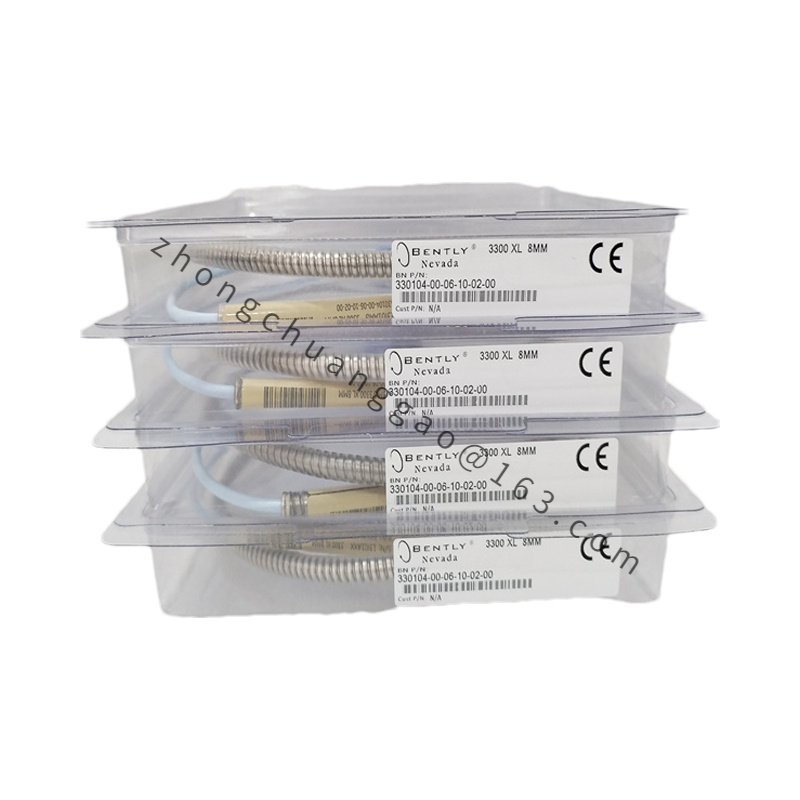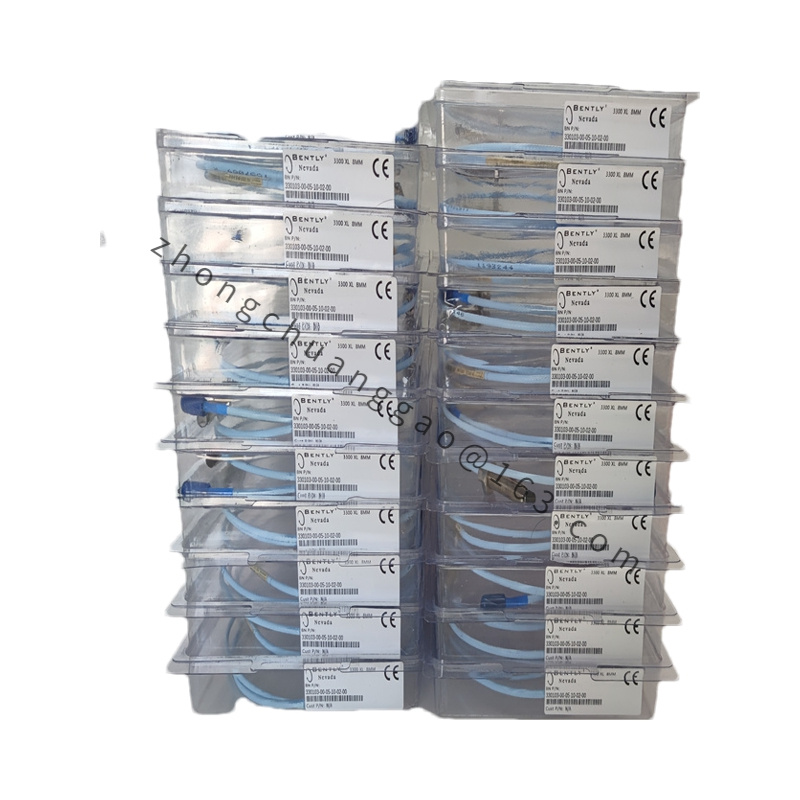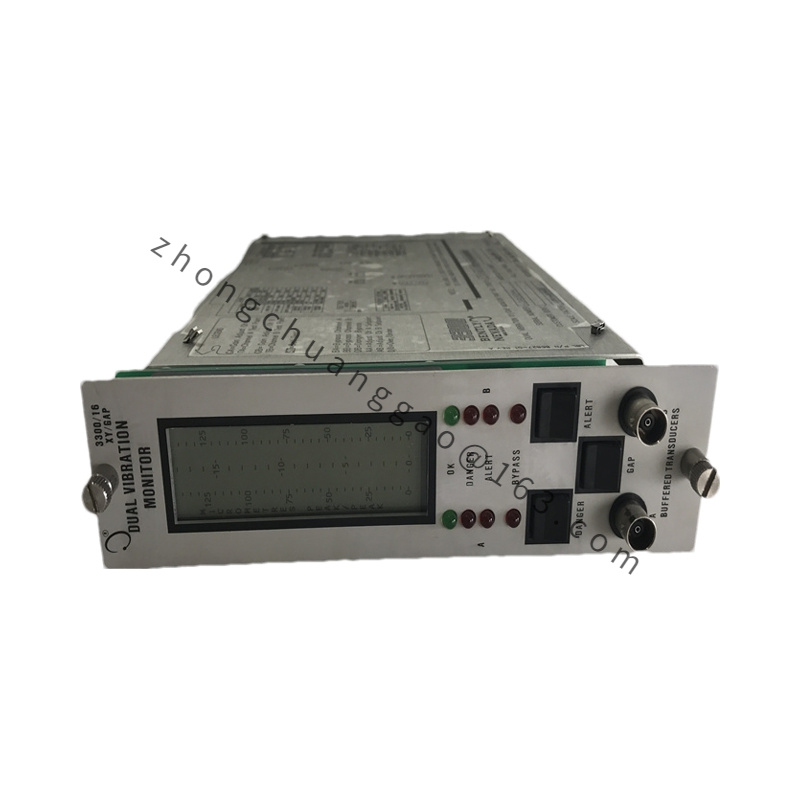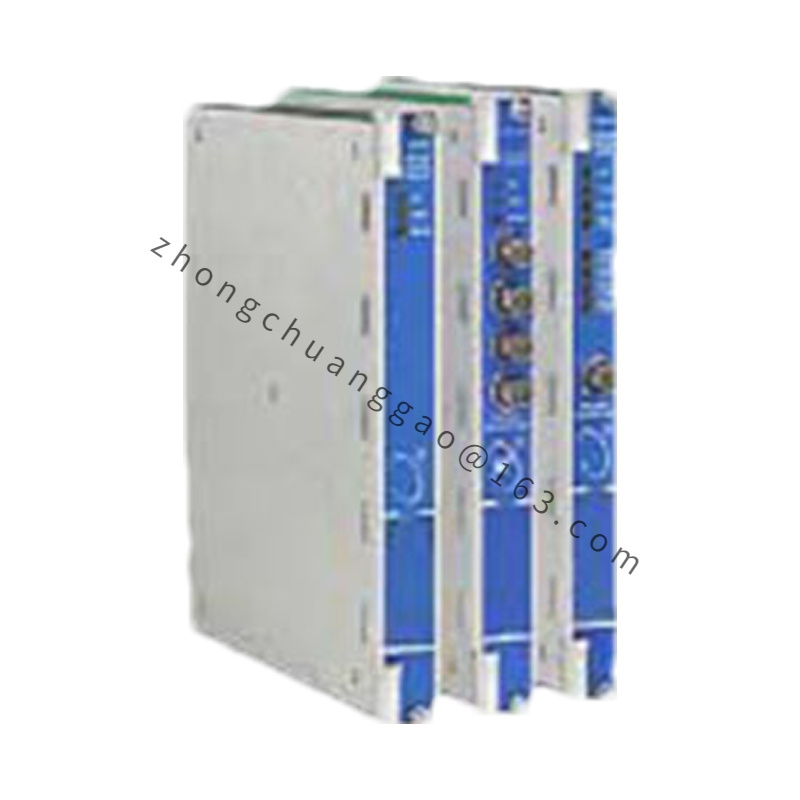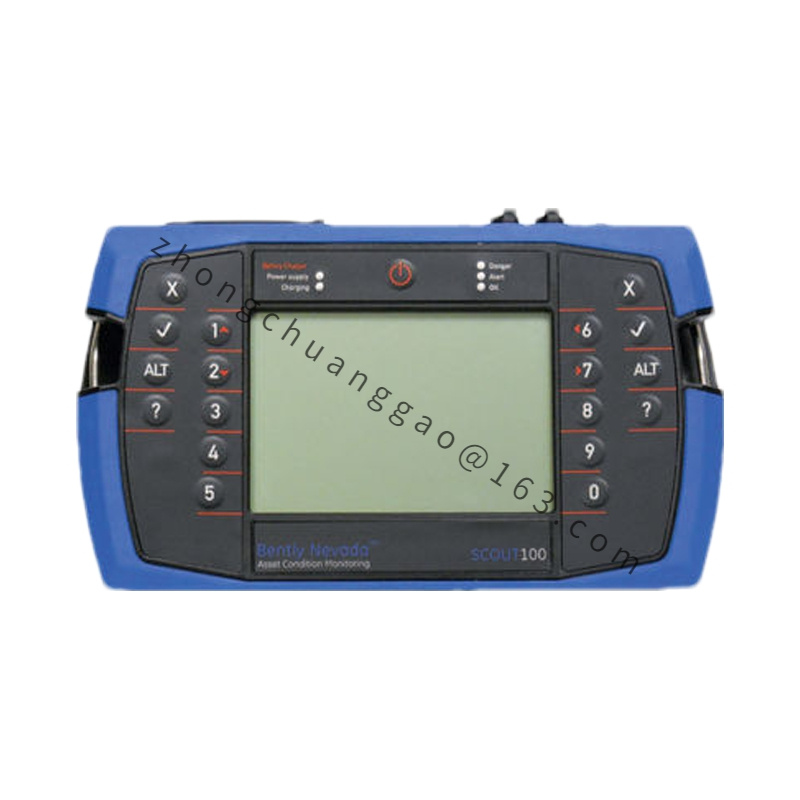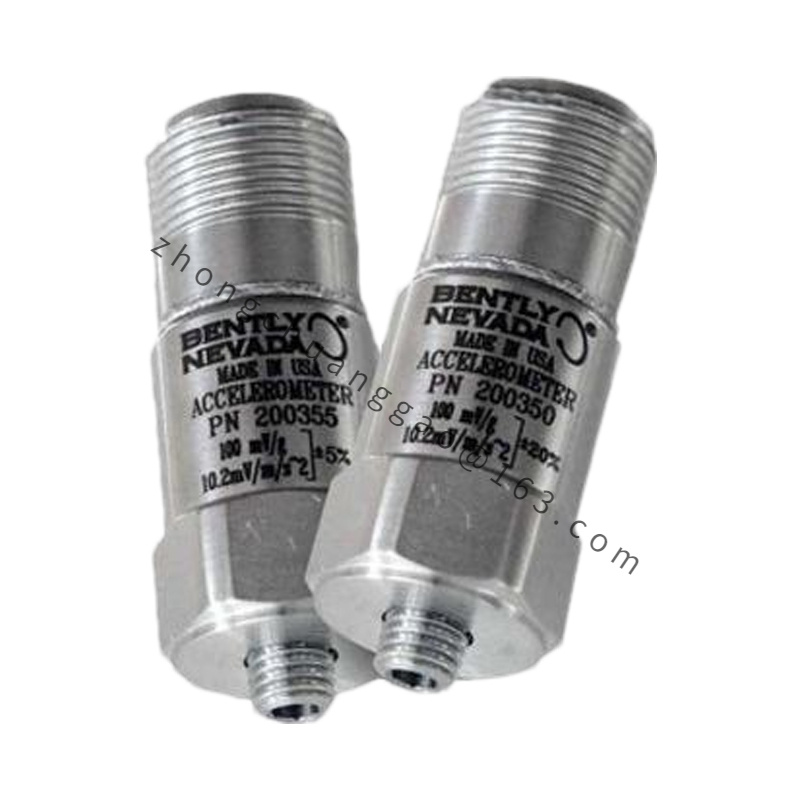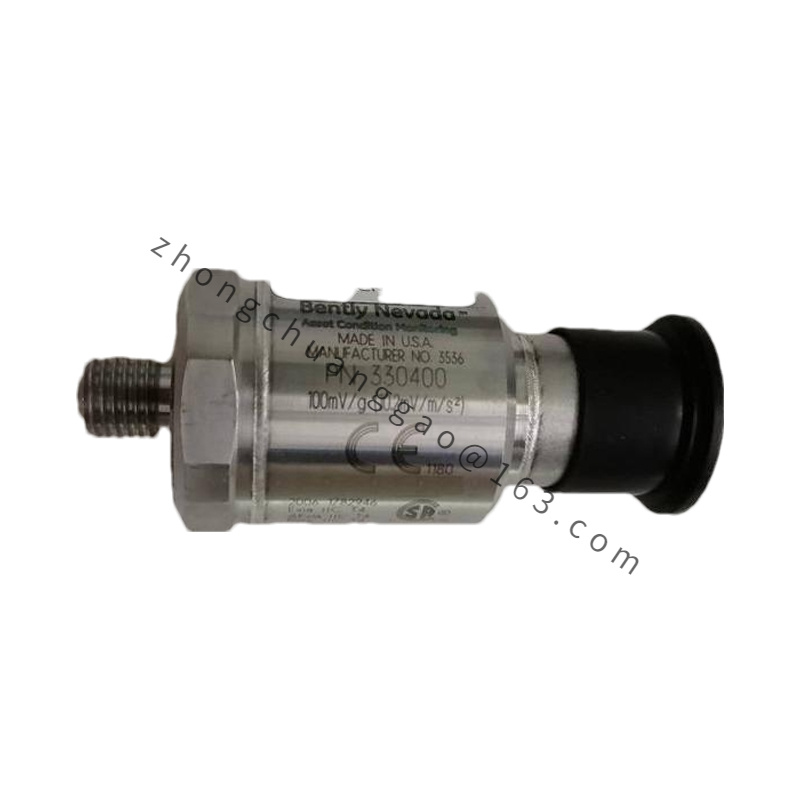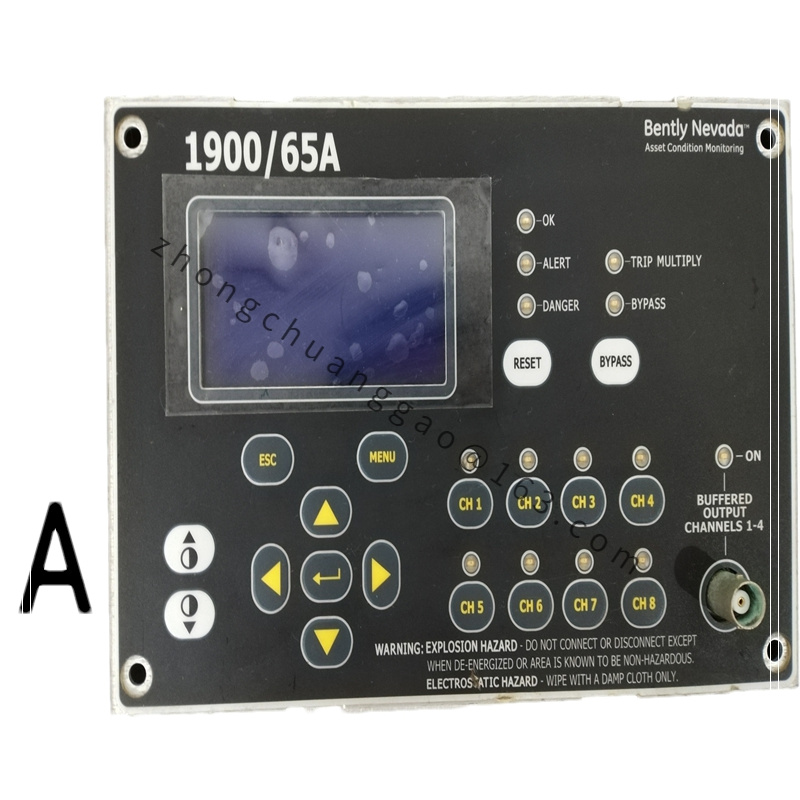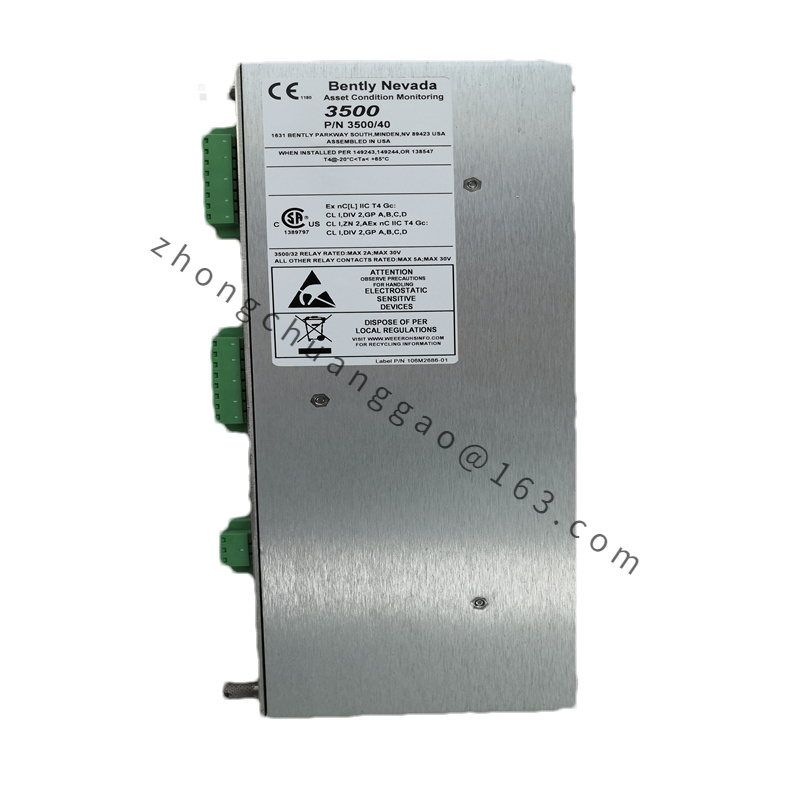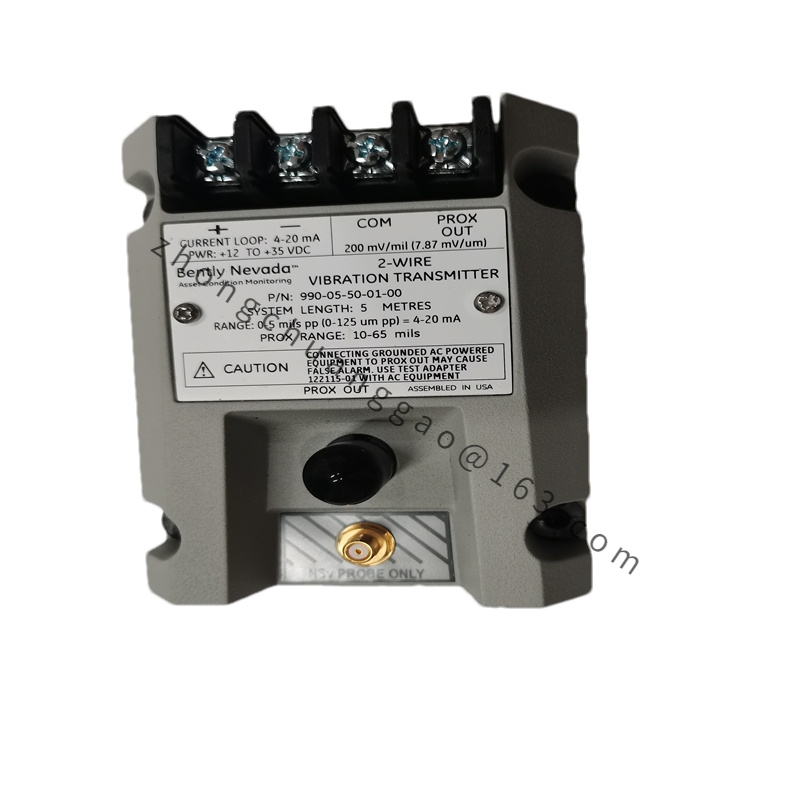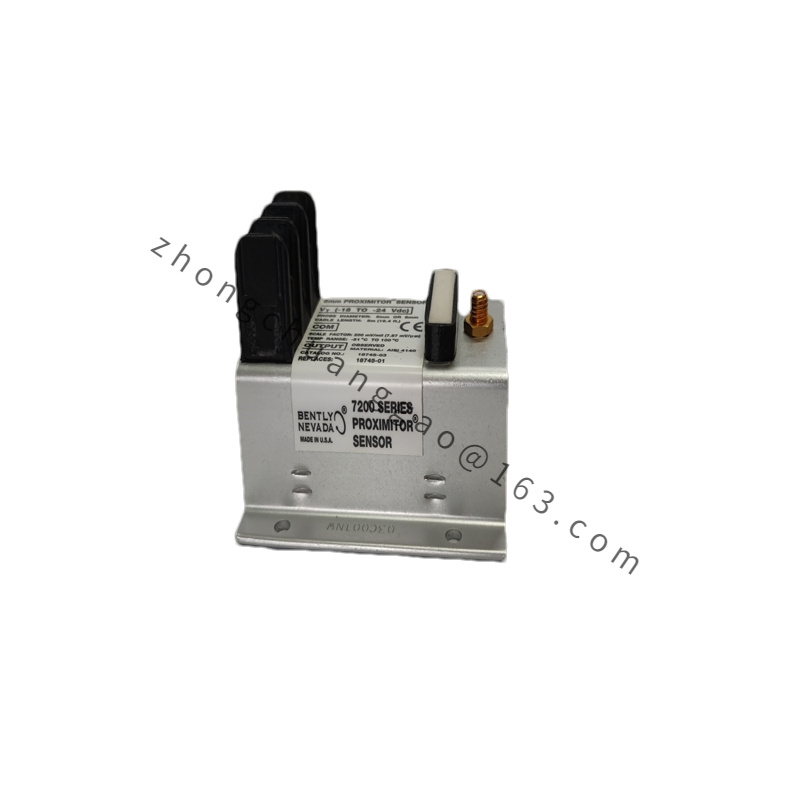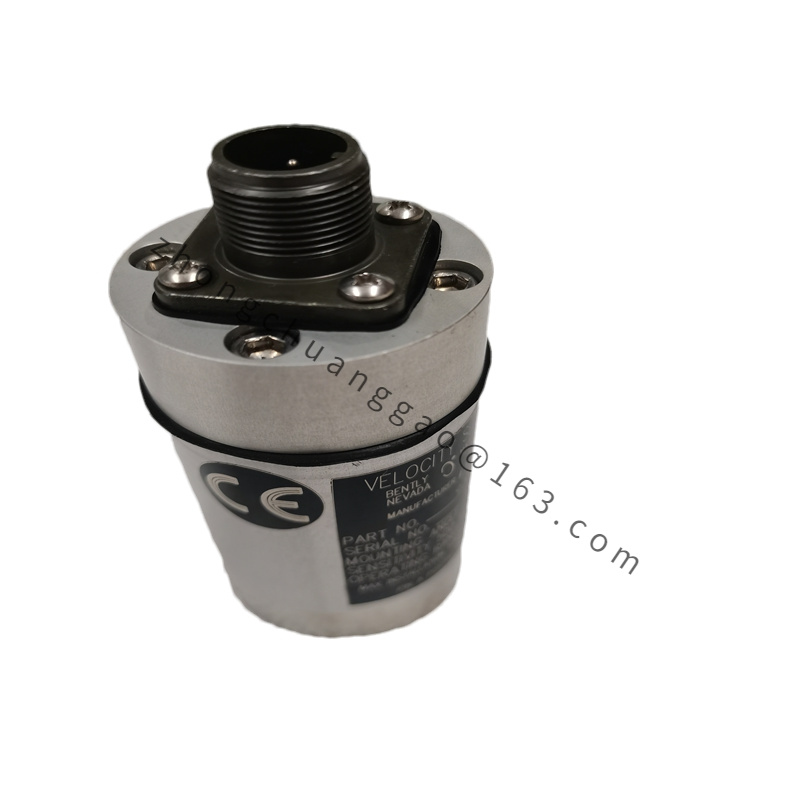Detailed content
Technical Specifications
- Model: Bently 330180-90-0
- Type: Vibration Sensor (Accelerometer)
- Measurement Range: This model measures vibration acceleration. The specific range of measurement is usually detailed in the product datasheet, but it is designed to accommodate various industrial needs.
- Output Signal: Typically provides an analog output. For the Bently 330180-90-0, this is often a 4-20 mA current loop signal, which is standard for integration with industrial monitoring systems.
- Sensitivity: Sensitivity is specified in units such as mV/g (millivolts per gravitational acceleration). The exact sensitivity values should be confirmed from the sensor’s datasheet.
- Frequency Response: The sensor is designed to measure a broad frequency range, including both low and high frequencies, suitable for diverse vibration monitoring applications. Specific frequency response details are provided in the datasheet.
- Operating Temperature Range: Operates within a wide temperature range, typically from -40°C to +85°C (-40°F to +185°F), ensuring functionality in various environmental conditions.
- Protection Rating: Typically has a high protection rating, such as IP67, indicating it is dust-tight and can resist temporary immersion in water.
Features
- High Precision: Provides accurate vibration measurements necessary for detecting small changes and potential issues in machinery.
- Durable Design: Engineered to withstand harsh industrial environments, ensuring long-term reliability and durability.
- Stable Performance: Known for its stable and consistent operation over time, which is essential for reliable monitoring and analysis.
- Easy Integration: Compatible with a range of vibration monitoring systems, making it easy to integrate into existing setups.
Application Scenarios
- Machinery Condition Monitoring: Ideal for monitoring the health of rotating equipment such as motors, pumps, compressors, and turbines. The sensor helps in early detection of mechanical issues through vibration analysis.
- Predictive Maintenance: Plays a crucial role in predictive maintenance programs by providing detailed vibration data that helps anticipate equipment failures before they occur, thereby minimizing downtime and maintenance costs.
- Industrial Automation: Used in automated systems for continuous monitoring of machinery, ensuring smooth operation and preventing production interruptions.
- Power Generation and Oil & Gas: Applied in critical industries like power generation and oil & gas to monitor essential equipment, helping to prevent unexpected failures and maintaining operational efficiency and safety.
Usage Considerations
- Installation: Proper installation is essential to obtain accurate vibration measurements. Ensure the sensor is mounted correctly in an optimal position for effective vibration monitoring.
- Calibration: Regular calibration is necessary to maintain the sensor’s accuracy and performance over time.
- Maintenance: Routine inspection and maintenance are important to ensure the sensor remains functional and to address any potential issues promptly.

